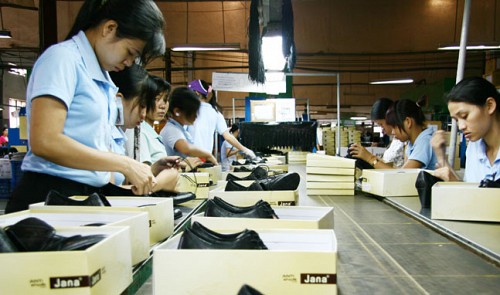Vietnam has endured nearly 20 antidumping lawsuits from various countries over the last two years and local businesses complain that it is an arduous task to resume exports to these markets even when the trade remedies are relaxed.
Vietnamese-made polyethylene (PE) bags have almost vanished from the U.S. market after the products were subject to extremely high antidumping and anti-subsidy duties for five years from 2009, following a ruling by the U.S. Department of Commerce (DOC) in 2010.
The antidumping duties range from 52.3 percent to 76.11 percent, while the band for anti-subsidy duties is from 5.28 percent to 52.56 percent.
Shortly after the decision was made, exports of Vietnamese-made PE bags of all kinds to the U.S. “were almost stalled as exporters were struggling to find customers,” recalled Ho Duc Lam, chairman of the Vietnam Plastic Association.
PE bags accounted for 40 percent of the total export turnovers of the Vietnamese plastic industry to the U.S., and the trade remedy actions thus resulted in a 40 percent decrease of the industry’s export values to the market, Lam added.
Last year exports of plastic products to the U.S. were valued at US$196 million, accounting for only 11 percent of the $1.75 billion turnovers of the plastic industry.
The chairman said Vietnamese plastic makers have “managed to find alternative outlets for their products” after the door to the U.S. market was shut to the PE bags.
He also said that the U.S. DOC is conducting an administrative review to decide whether to maintain or lift the duties.
But even when the duties are eliminated, “it will take a long time for Vietnamese businesses to resume exports to the U.S. market,” remarked a plastic maker, whose business had to shift to manufacture decomposable bags to export to the EU after exports to the U.S. were halted.
This is not a pessimistic comment, as proven by the case of Lien Phat Co, a shoemaker based in southern Binh Duong Province.
Production capacity affected
In 2006, the EU levied a 10 percent antidumping duty on leather capped shoes manufactured in Vietnam, but the action was lifted five years later.
Even so, Lien Phat Co is still unable to revitalize its production capacity, according to director Truong Thuy Lien.
“Our production capacity slumped 40 percent following the EU decision, and the size of the workforce was reduced from more than 1,200 to only several hundreds of employees as European importers simultaneously canceled orders,” she recalled.
Two years after the duties were removed in 2011, the company’s workforce rose back to nearly 1,200 workers, but exports to the EU now occupy only 50 percent of the total figure, instead of the previous 70 percent rate.
“And the leather capped shoes only make up a modest proportion of the total export turnovers,” the director said.
More and more Vietnamese-made exports, ranging from fabric and lighters to motorbike tires and steel pipes, have been hit by antidumping duties in overseas markets since 2011, according to the Vietnam Competition Authority.
Fourteen lawsuits related to antidumping tariffs, anti-subsidy, and safeguard measures were filed in 2012 while three antidumping lawsuits have been initiated by India, Thailand, Indonesia, and the Philippines in the first quarter of this year.
Like us on Facebook or follow us on Twitter to get the latest news about Vietnam!






















































